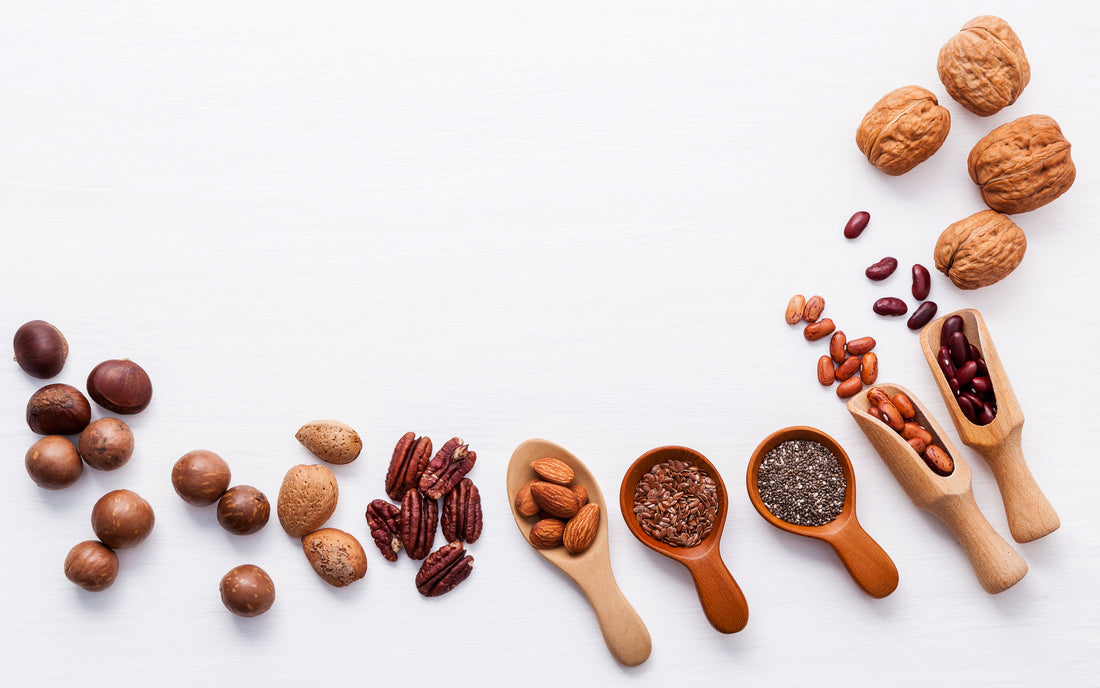
Omega-3s are packed with health benefits - Here’s how to add more to your diet!
Omega-3 is called an essential fatty acid for a reason. They are not only essential for your body to function, but also necessary for your health. Since the body doesn’t produce these fatty acids on its own, omega-3s must be incorporated in your diet—whether it's through the foods you eat or supplemented in some way.
On top of that, Omega-3s have some surprising hidden health benefits too!
What are Omega-3s?
There are actually three types of fatty acids that are collectively referred to as omega-3’s: alpha-linolenic acid (ALA), eicosapentaenoic acid (EPA), and docosahexaenoic acid (DHA). ALA is found mainly in nuts and seeds as well as plant oils such as flaxseed. DHA and EPA are found in fish and other seafood.
Before we dive in, one thing to note is that our body naturally converts the fatty acid ALA to DHA and EPA through a series of steps. This is important for vegetarians, vegans, and those who choose not to eat fish where DHA and EPA is most prevalent. Fortunately, there is another way to meet your EPA and DHA needs entirely through plants, nuts, and seeds (ALA).
But what exactly are they used for, and what do they do for human health? Let’s get into it!
They’re touted for their abilities to:
- Boost brain function
- Reduce inflammation
- Promote heart health
1. Omega-3 fatty acids reduce your risk of heart disease
- Decreasing triglycerides, a type of fat in the blood
- Increasing HDL levels, the healthy type of cholesterol
- Lowering blood pressure
2. Omega-3s for expectant mamas (pregnancy)
3. Boosting brain power
4. Omega-3 fatty acids combat inflammation
How can you incorporate this natural goodness into your diet?
Some foods naturally contain omega-3s, and others may be fortified. You can get adequate amounts of omega-3s by eating a variety of foods, such as:
- Nuts and seeds (such as flaxseed, chia seeds, and macadamia nuts)
- Plant oils (such as flaxseed oil, soybean oil, and canola oil)
- Fortified foods (such as certain brands of eggs, juices, milk, soy or nut beverages)
- Fish and other seafood (especially cold-water fatty fish, such as salmon, mackerel, tuna, herring, and sardines)
So, what does this all mean!
Omega-3 fatty acids have many potential health benefits for everything from your brain to your skin! Although we need more research in some cases, omega-3s’ possible effects on several aspects of our health are nuts! If you’re looking for a way to naturally get omega-3’s, Lechia’s drinks are a great source as they provide 75% of the recommended daily intake of omega-3.
Sources
¹ https://effectivehealthcare.ahrq.gov/products/fatty-acids-cardiovascular-disease/consumer
² https://www.ncbi.nlm.nih.gov/pmc/articles/PMC7230742/
³ https://www.sciencedirect.com/science/article/pii/S0899900714003396?via%3Dihub
⁴ https://pubmed.ncbi.nlm.nih.gov/26718417/
